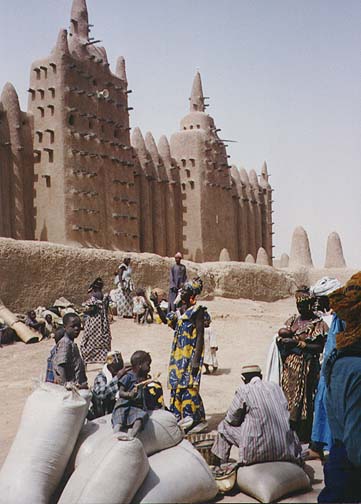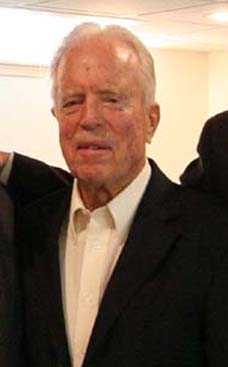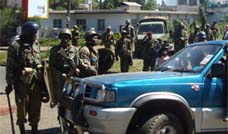
What was needed, he theorized, was a formalized system — a kind of apprenticeship that could function just fine with Malian experts and without highly paid international experts. He returned to school, obtaining a master’s degree in sustainable development from the School for International Training in Brattleboro, Vt. Working with his wife, Mr. Flatt has since used that degree and the practical knowledge he has accumulated to start a Community Supporter Agriculture program in Vermont. He is also a volunteer in Mali. Now he is working on expanding and building on what he and Ms. Hellmann have done so far. “We’d like to assist worker-owned cooperatives by providing training,” he said, explaining: “We would be hiring, and have hired, Malian experts to train fellow Malians.” He and Ms. Hellmann already provide “micro loans” to Malians who are starting or expanding their businesses. Some of the loans, he said, are as little as $50, but have grand impacts assisting hard-working people with producing their products and getting them to market. One example, he said, is a $50 loan he and Ms. Hellmann made to a Malian woman who wanted to set up a roadside stand to sell vegetables. “A little goes a long way,” he said as he talked excitedly about the tea, cotton, shea butter, dried mangoes and other products he hopes to help Malians sell in their own land and here. Still, he said, the ideal is the system he and Ms. Hellmann are working on, which would establish or expand Malian-owned companies to sell products to an international market.
While working with local farmers in Mali as a Peace Corps Volunteer Gregory Flatt realized that the most experienced farmers could train other Malians
Couple creates system for Malian self-reliance
Jean L. Hill Wachusett Watch
jhill@telegram.com
Do you ever wonder whatever happened to a former classmate from Wachusett Regional High School? Well, if you went to school with Gregory Flatt of Princeton, class of 1992, I can tell you he is following the road less traveled, and can be found with his wife, Cynthia Hellmann, originally from the Midwest, quoted in the pages of the book “The Secret History of the American Empire” by John Perkins.
After high school, Mr. Flatt, now 33, went to the University of Massachusetts at Amherst. Emerging with a bachelor’s degree in anthropology four years later, he had a yen to serve the world. He joined the Peace Corps and headed to the beautiful but struggling country of Mali in West Africa.
Already book smart, Mr. Flatt gained a practical education while working as an agricultural extension agent with people who live off the land.
In a recent interview, he spoke highly of the skills of the Malian farmers he met when he was in the Peace Corps from 1997 to 1999, and since.
And he spoke passionately of the Malian people’s need to market their products in this country and beyond without the interference of parties interested in unreasonably high profits at the expense of the Malian workers.
While in Mali as a young college graduate, Mr. Flatt helped farmers feed their families by raising money to purchase a fence to protect a community garden from the local livestock that was eating the crops.
And he started something simple — raising rabbits in his backyard. Malians noticed and he shared breeding pairs with them, building on a renewable resource.
A musician and songwriter, Mr. Flatt wrote about what he knew, a song about rabbits. He said he recorded it with Malian artists, an effort that led him to another passion — the Peace Corps volunteer and musician from the Midwest who was to become his wife.
The couple, joined by love, ideals and energies, have helped build self sufficiency where they live in Vermont, and by continued work in Mali.
Their ideal plan for Mali actually came from Mr. Flatt’s belief that he was paid too much when he was hired, after serving in the Peace Corps, to serve as a technical adviser on agriculture in Mali.
While working with local farmers in Mali, Mr. Flatt said, he realized that the most experienced farmers could train other Malians.
What was needed, he theorized, was a formalized system — a kind of apprenticeship that could function just fine with Malian experts and without highly paid international experts. He returned to school, obtaining a master’s degree in sustainable development from the School for International Training in Brattleboro, Vt.
Working with his wife, Mr. Flatt has since used that degree and the practical knowledge he has accumulated to start a Community Supporter Agriculture program in Vermont. He is also a volunteer in Mali.
Now he is working on expanding and building on what he and Ms. Hellmann have done so far.
“We’d like to assist worker-owned cooperatives by providing training,” he said, explaining: “We would be hiring, and have hired, Malian experts to train fellow Malians.”
He and Ms. Hellmann already provide “micro loans” to Malians who are starting or expanding their businesses. Some of the loans, he said, are as little as $50, but have grand impacts assisting hard-working people with producing their products and getting them to market.
One example, he said, is a $50 loan he and Ms. Hellmann made to a Malian woman who wanted to set up a roadside stand to sell vegetables.
“A little goes a long way,” he said as he talked excitedly about the tea, cotton, shea butter, dried mangoes and other products he hopes to help Malians sell in their own land and here.
Still, he said, the ideal is the system he and Ms. Hellmann are working on, which would establish or expand Malian-owned companies to sell products to an international market.
To that end, Mr. Flatt and Ms. Hellmann have founded Ecova-Mali, a program of economic and ecological viability through agriculture.
It is just a seedling, but promises to thrive. You can read more about it at www.ecovamali.org.









